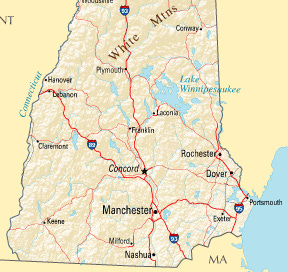An adult from Hampstead, New Hampshire who tested positive for Eastern Equine Encephalitis Virus (EEEV) infection, was hospitalized due to severe central nervous system disease, and has passed away due to their illness, according to the New Hampshire Department of Health and Human Services (DHHS).
The last reported human EEEV infection in New Hampshire was in 2014, when DHHS identified three human infections, including two fatalities.
Human EEE cases have also been reported in New Jersey, and neighboring states of Vermont and Massachusetts this year to date.
“In New Hampshire, mosquitos transmit infections including Eastern Equine Encephalitis Virus, West Nile Virus, and Jamestown Canyon Virus,” said State Epidemiologist Dr. Benjamin Chan. “We believe there is an elevated risk for EEEV infections this year in New England given the positive mosquito samples identified. The risk will continue into the fall until there is a hard frost that kills the mosquitos. Everybody should take steps to prevent mosquito bites when they are outdoors.”
EEEV is a rare but serious disease transmitted to people by infected mosquitos. EEEV can cause flu-like symptoms such as fever, chills, muscle aches, and joint pain. EEEV can also cause severe neurological disease, such as inflammation of the brain and membranes around the spinal cord (i.e. encephalitis and meningitis). Approximately one-third of all people who develop encephalitis from EEEV die from their infection, and many others experience life-long physical or mental impacts. There is no vaccine or antiviral treatment for EEEV.





